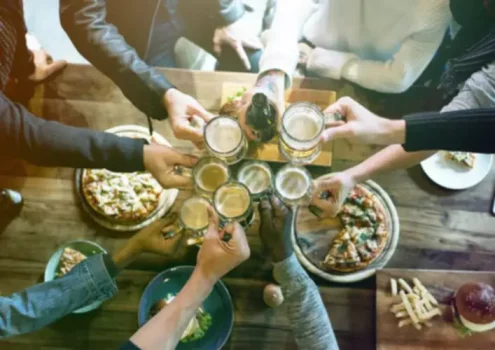
Fresh fruits and vegetables, lean protein (e.g., chicken, fish), and healthy fats (e.g., olive oil, salmon) offer nutrients that support immune function. There is some evidence that sorrow, especially if lasts a long time, can depress your body’s immunity. The effect can linger for 6 months, but may Sobriety go on longer if your grief is deep or doesn’t ease. Talk to your doctor or a mental health professional if you need help with a loss or traumatic event. The frequency at which a person drinks also determines how much it affects the immune system.
- “When you’re feeling run down or like you might get sick, you want to be well hydrated so that all the cells in your body have enough fluid in them and can work really well,” Favini says.
- While we encourage a mindful approach to alcohol consumption, we also emphasize the importance of supporting our immune systems through healthy lifestyle choices and high-quality supplements.
- A person can experience alcohol withdrawal syndrome whether they have been drinking for weeks, months, or years.
- Specifically, people who had consumed 30.9 ± 18.7 alcoholic drinks/day for approximately 25.6 ± 11.5 years exhibited a decreased frequency of naïve (i.e., CD45RA+) CD4 and CD8 T cells, as well as an increased frequency of memory T cells (i.e., CD45RO+) (Cook et al. 1994).
- Diaz highlights the importance of filling your social circle with people who respect your decisions and align with your goals.
- When you drink too much alcohol, it can throw off the balance of good and bad bacteria in your gut.
Alcohol’s Effects on PMNs
“In a famous study1, the researcher went to people who had just lost their partners or spouses in the hospital and drew their blood, and he showed that extreme grief is linked to an acute drop in immune reactivity,” says Horwitz. “So your B-cells and T-cells aren’t as responsive in periods of extreme stress and grief.” Excessive stress also means excessive levels of the “stress hormone” cortisol are pumping through your system, which “can weaken the immune system by weakening the gut-immune barrier,” says Moday. “It does that specifically by lowering an antibody called IgA, which lines all of our mucus layers through the digestive tract and acts as a first line of protection.” When this happens, viruses are able to more readily invade through the lining of the intestinal tract. In fact, one study found that students’ immunity decreased during a stressful three-day exam period. They produced fewer NK cells and their infection-fighting T-cells were less responsive.

Suppression of Immune Responses

Other sleep hygiene tips include sleeping in a completely dark room or using a sleep mask, going to bed at the same time every night, and exercising regularly (3). Adults should aim to get 7 or more hours of sleep each night, while teens need 8–10 hours and younger children and infants up to 14 hours (3). More likely than not, your relationships will have improved in this year of not drinking. Dependent drinkers will often feel more energy and a sense of well-being at the 3-month mark.

Cancer Risk
Plus, it disrupts the important REM stage of sleep and may interfere with your breathing. Try skipping alcohol, especially in the late afternoon and evening, for more restful shut-eye. Improve strength, energy, recovery, and cognitive function with this high-absorption formula. Its advanced HCl form ensures easy digestion and no bloating, providing all the benefits without the drawbacks. Elevate your fitness journey and overall wellness with a supplement designed for women’s unique needs.

Studies have shown that alcohol can impair the ability of these cells to function effectively, leading to a weakened immune response and increased susceptibility to infections. As the COVID-19 pandemic persists, healthcare professionals are increasingly focused on how alcohol consumption affects vaccine efficacy. While moderate alcohol intake is not likely to interfere with the immune response to the COVID-19 vaccine, excessive drinking can significantly weaken the body’s ability to respond effectively to vaccination, potentially reducing the drinking lowers immune system vaccine’s protective effects. In contrast, level of anti-inflammatory protein adiponectin increased (Joosten, van Erk et al. 2012). In addition to these changes in cytokine function, investigators also have shown a contribution of barrier dysfunction to the postinjury increase in infections in intoxicated people (Choudhry et al. 2004).

